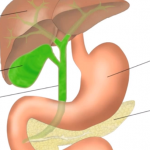Growth spurt is a condition wherein the baby grows faster than normal. During this phase of growth spurts the baby often nurse more frequently than usual. Sometimes they may nurse every hour. Such babies also tend to act crankier than usual. Significant increase in baby’s appetite for milk during this phase is temporary. In babies who completely rely on breast-milk the consumption upsurges quickly in first few weeks of their life. The baby continues to have increased appetite for 1 to 6 months. When solid foods are introduced in baby’s diet after 6 months their intake of breast milk decreases gradually. Temporarily increased nursing is not only needed for physical growth. Increased nursing and fussiness remains the same when they are undergoing developments such as rolling over, crawling, talking etc. Breast milk is beneficial for the brain and body of the growing child.
Growth spurts commonly occurs during the first few days and then periodically during 2 week to 9 months or even more. In fact growth spurt time in every baby may be different. You should also remember that these spurts may not stop after the first year. Even when your child is a toddler, growth spurts may be experienced every few moths. After this, such spurts also occur periodically even through the teens. In most cases growth spurts last for around 2 to 3 days but in some cases it lasts for a week.
You should not be worried whether it is deficiency of milk production or your baby’s growth spurt. In fact you should focus on breastfeeding the baby as it demands. This way you can ensure that you produce more milk because the more you feed your breast milk to the baby the more milk will your body make. This should not be a long term problem. This is because the baby’s growth spurt does not really last for long but only a few days. In case if the breastfeeding problem persists for longer than 7 days it is crucial to speak with an expert or lactation consultant. If the baby has frequently wet and messy diapers it is often an indication of growth spurt.

Symptoms of Growth Spurts in babies
During the time of growth spurts babies often have seemingly insatiable appetite. In some cases the baby during growth phase may feed every hour. They may also seem to be fussier. It may become difficult to settle even after feeding the baby. During these few days of growth spurt the sleep pattern of the baby become irregular. Some babies during growth spurt may sleep more or may sleep lesser than usual. Before the growth spurt starts some babies tend to be settled and calm. They may also eat less as well as sleep for longer time before their growth spurt starts. Similar symptoms may be noticed even when the baby undergoes general growth such as crawling, learning etc. Such developmental shift may also lead to increased appetite than usual and changed sleeping pattern.
Why babies sleep more during growth spurts
Researches explain about the sleeping habit of babies under growth spurts. It is studied that sleeping pattern of infants is very different from sleeping style of adults. When it is considered that infant is in light sleep he is actually almost not sleeping. It is crucial to maintain a set schedule and follow it on regular basis, especially when it comes to infant’s bed time. It is stated that children who do not sleep properly, does not grow as efficiently as other children do. During deeper stages of sleep the infant’s body produces more growth hormone. This explains why infants tend to sleep more during growth spurts.
How to deal with growth spurts in babies
Handling babies during growth spurts can be very exhausting as the baby tends to eat as if he is invited for a buffet. This phase becomes difficult for the mother as she struggles to get rest and does not get enough time to do anything apart from feeding her child. You should drink plenty of water to maintain body hydration. You may need help from your partner or from friends to perform other household errands. While you are near your child you may need something to eradicate boredom. You can use DVDs to pass time.
Irrespective of whatever you are doing you should not give up on breast feeding. If your baby feels hungry frequently and crankier than usual you may feel that he is not getting proper nutrition. At this point you may consider introducing solid food in his diet. This should be avoided as mother’s milk is essential for child unless he turns 6 to 7 months old. After sixth month you may supplement milk with additional solid food. This will help in meeting the appetite of the baby. Usually growth spurts is nothing to worry about. All you have to do is meet your baby’s need for food as well as sleep and keep consulting your doctor and seek information timely.


